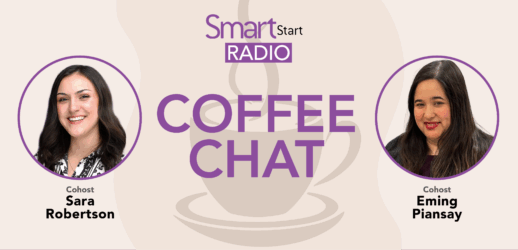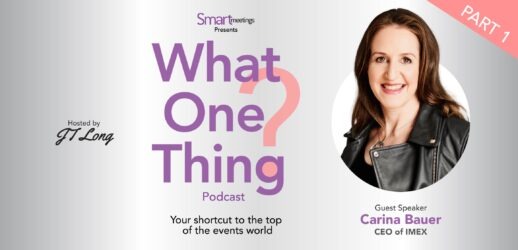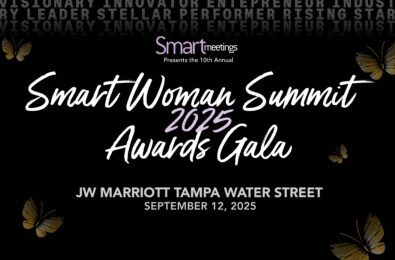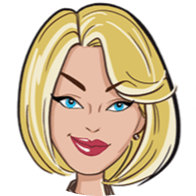What does it truly mean to be an ally—not just in title, but in everyday action? In this special episode of What One Thing?, we celebrate the inaugural Smart Allies cohort with candid conversations about leadership, mentorship, and advocacy. Leonard Hoops (President & CEO, Visit Indy), David Stevens (Co-founder, Olympian Meeting), and Mike May (President, Brightspot Incentives & Events) join host JT Long to unpack how allies go beyond lip service—walking people through the door of opportunity, not just up to it.
From hiring bold college grads and advocating for accessibility, to amplifying mental health conversations and crediting others in the room (and beyond), this episode is packed with honest stories, leadership wisdom, and action steps for anyone who wants to be a better mentor, sponsor or ally.
Featuring special guests:
• Leonard Hoops and his accessible vision for Indy
• David Stevens on using your power for good
• Mike May and Bree Richards on paying it forward—early and often
Editor’s note: This episode of What One Thing? was transcribed by Otter.ai and edited lightly.
JT Long Welcome to a special edition of the Smart Meetings What One Thing? podcast. After announcing our first cohort of Smart Ally winners, we knew it was time for a frank conversation about what it really means to be a mentor, sponsor, and ally—the right way. Joining us first is Leonard Hoops, president and CEO of Visit Indy, and one of our inaugural Smart Ally honorees. Congratulations, Leonard!
LH Thank you, JT. It’s truly an honor—one that means a lot to me. Knowing that I’ve helped women in our industry maximize their potential and success is incredibly rewarding.
JL You’ve built a brilliant team in Indy, many of whom are Smart Women winners. Let’s start with allyship. What does being an ally mean to you?
LH Honestly, I wish I could say I approach it with some kind of strategic intentionality, but really, I just believe in helping people. We all see life through different lenses—whether it’s gender, ability, or background—and that diversity is powerful. Supporting people who face roadblocks, whether they’re women, people with disabilities like my son who has cerebral palsy, or members of the LGBTQ+ community, just feels like the right thing to do.
JL You’re also deeply involved—PCMA board member, volunteer—you walk the walk. How does that help lift the entire industry?
LH Visibility brings responsibility. Being in a public leadership role gives me a platform to advocate—whether it’s for women, for accessibility, or for fairness in general. I’ve always believed that people are the foundation of any organization, not just the numbers in a P&L. Empowering them to succeed day to day is the real bottom line.
JL Let’s talk mentorship. I hear if you hadn’t chosen hospitality, you might’ve been a comedian?
LH (Laughs) I did stand-up in high school and college. I did OK at it, but ultimately, I was too emotionally well-adjusted—and frankly, a little scared. I studied journalism and wanted to be a sportswriter. That path led me into corporate PR and then into hospitality.
JLAnd women played a key role in your early career?
LH Absolutely. Patricia Rex, my first boss in a corporate job, saw something in me. When she retired, I took over her department. Later, Marion Holt McLean, CEO of the San Jose CVB, brought me into the industry and promoted me multiple times. I owe a lot to them—and I try to pay that forward every day.
JL How do you mentor within your organization today?
LH: Most of our team is women, which is pretty typical for mid-to-large DMOs. I’ve always felt different in some way—growing up short, ethnically mixed, born in Trinidad—and those experiences made me more aware of what it means to feel like an outsider. Mentoring, for me, includes learning just as much as teaching. I learn from my direct reports, from junior staff, even from people like Susie Townsend on my team, who’s a Smart Women Hall of Famer. It’s mutual growth.
JL And from your perspective, that extends to sponsorship and accessibility too, right?
LH Definitely. My son Cannon has cerebral palsy and doesn’t walk or speak, but he’s graduating high school soon with honors. Living that journey has opened my eyes. At Visit Indy, we’ve integrated robust accessibility features on our website. It’s a constant work in progress. We still need to do more for people on the spectrum or with invisible disabilities. True inclusion isn’t one-size-fits-all.
JL: That’s incredible. So let’s wrap with our signature question. What’s one thing someone can do to be a better ally, mentor, or sponsor?
LH Be intentional. That’s something I credit my wife Doreen for teaching me. Intentionality means taking the time to think beyond yourself—to ask what someone else needs, to imagine what they’re going through. We need more of that. We need to put ourselves in other people’s shoes, especially in a world that often feels so divided. That, I believe, is where real allyship begins.
JT LongI’m here with David Stevens, co-founder of Olympian Meeting and a Smart Ally honoree. Congratulations, David.
David Stevens Thank you. It’s truly an honor and humbling to be included in this inaugural cohort.
JL It’s well-deserved. You’ve supported so many people. Let’s dive into allyship, mentorship, and sponsorship. You’ve launched countless careers. How do you define the difference between these roles?
DS Being a true ally goes beyond empathy. It’s about using your voice when others don’t have one. A lot of people with inherent privilege don’t realize how much weight their words carry. That’s why it’s so important—when someone’s not in the room—you say their name anyway. You speak up for them.
JL Absolutely. Do you have an example?
DS Yes, one stands out. I was still in corporate when a new CMO asked me what my biggest challenge was. I told her: “Using my power for good.” She was confused at first. So I shared a story—me, two female coworkers, and an executive were deciding on a venue for the holiday event. We all shared ideas. In the end, the exec said, “Dave, you’re the professional. What do you think?” I gave my opinion, and that’s what we went with.
JL And that changed the room.
DS Exactly. The energy shifted. The others had been there longer than me, and while I was the event pro, there was an unconscious bias at play. That moment stuck with me. I made it my mission to leave an impression so that next time, that exec would respect the role of an event professional—regardless of gender.
JL That level of awareness is powerful. What about mentorship? You’ve worked with some amazing people.
DS I had a phenomenal mentor—Marin. Even though I’d already been a VP, led teams, and run my own business, working with her was transformational. When I launched Olympian Meeting full-time, I realized how much I’d learned from her. We even helped create a new event category: wellness at events. That didn’t exist before.
JL And now everyone’s talking about it.
DS Right? At first, it was hard not to feel territorial when others started replicating what we were doing. But then I realized—if nobody follows, maybe the category wasn’t worth creating. Like Coke and Pepsi—you grow the market by growing the category. A rising tide lifts all ships. So now, I celebrate the amplification. We need more voices advocating for wellness at events.
JL You’ve also been outspoken about mental health, particularly men’s mental health. That can be a tough subject.
DS For sure. There’s this myth that asking for help is weakness—especially for men. I grew up with a father from the Greatest Generation. He was born in 1922. So I absorbed that mindset: suck it up, keep going. But the pandemic changed that for me. In mid-2020, I was spiraling. My co-founder, Ari, asked, “What are you doing for your mental health?” I said, “Lifting heavier weights.” I wasn’t open to anything “woo-woo” like crystals or meditation.
JL Did that change?
DS Big time. My company offered Headspace for free. I gave it a try, and it shifted everything. Meditation helped reframe how I approached my mental well-being. And now I say this: check on the people who seem the strongest. They’re often the ones no one checks on. Look at Robin Williams, Anthony Bourdain—they were at the peak of success. We can’t assume someone is OK just because they look strong.
JL Especially now. Planners are facing a lot of stress—tariffs, supply chain issues, mental exhaustion. And yet, they adapt.
DS That’s what planners do. We plan for the worst and hope for the best. If you’re someone who thrives in rinse-and-repeat situations, this may not be your industry for long. The planners who thrive now are flexible, strategic, and proactive.
JL Like sourcing local when tariffs hit?
DS Exactly. Buy local, support the community. Collaborate with chefs. Drop bananas from Costa Rica—use what’s available. Planners who adapt and collaborate will thrive.
JL Let’s wrap with your “one thing.” What would you tell someone who wants to be a great ally, mentor, or sponsor?
DS Speak up for people who aren’t in the room. If someone gives you a great idea and you have the platform—share the idea and give them credit. Let the best idea win, and lift up the person behind it.
JT Long I’m here with Mike May, president of Brightspot Incentives & Events, and Bree Richards, senior sourcing manager. Mike, congratulations on being named to the inaugural Smart Ally cohort!
Mike May Thank you! It’s a real honor—especially being part of the very first group. In an industry dominated by women, being recognized for supporting female leadership means a lot to me.
JTL And Bree, you’re here as someone who has grown under Mike’s mentorship. How did the two of you first meet?
Bree Richards That was over 10 years ago. I was in college, had one semester left, and honestly didn’t know much about this industry. But I boldly emailed Mike directly—no idea what I was doing! He invited me into the office, gave me a full tour, explained the industry, and introduced me to the team. I left thinking, “I want to do this.” And I’ve been here ever since.
MM That boldness—taking initiative—is one of the things we look for. Bree created her own opportunity. She didn’t wait for something to come to her.
JL And she’s grown with the company since?
MM: Absolutely. She started just out of school and has been promoted five times—from coordinator to senior manager. She’s a great example of why we invest in people from the ground up.
JL Why do you make time to respond to cold emails from college students?
MM Two reasons—one philosophical, one practical. Philosophically, I believe in giving back. People ignored my emails when I was job hunting, and I remember how that felt. Practically, we’re a 90-person company. We don’t have a big recruiting department. Finding talent this way helps both them and us. Our name says it—we want to be a bright spot in people’s lives.
JL Bree, how have you paid that forward?
BR I go back to my alma mater, Abilene Christian University, to speak to business classes. I introduce students to this industry—most of them have never heard of it. We’ve even hired a few interns and full-time employees from those visits. I also help onboard new hires and train our team, sharing what I’ve learned.
JL Mike, does Brightspot have a formal mentorship program?
MM: It’s mostly informal. We assign a “buddy” to new hires, but what we really emphasize is modeling mentorship day to day. COVID made that harder—remote work cuts down on those casual, teachable moments. But we push for face-to-face collaboration on Tuesdays through Thursdays. It helps create learning opportunities in real time.
BR That makes a difference. When you’re promoted here, you’re supported—not just thrown into the fire. We have structure, documents, people ready to help. And we’re encouraged to join external groups—SITE, IRF, advisory boards. That exposure is another kind of mentorship.
JL What about reverse mentorship—learning from junior team members?
MM Definitely. Generational diversity is an underrated form of inclusion. Younger team members bring new tech, new trends, new perspectives. It helps us stay relevant. We’re learning from each other all the time.
JL Let’s talk about sponsorship. How does that look at Brightspot?
MM Sponsorship is more intentional than mentorship. It’s about advocating for someone when they’re not in the room. One form of that is making sure people attend industry events. We support it with time and budget. It helps them grow and builds our future leaders.
JL Bree, how does that support feel from your side?
BR It makes a huge difference. I’ve had opportunities to attend conferences, join young leader programs, and learn from others across the industry. That kind of investment builds confidence—and loyalty.
JL Let’s wrap with your “one thing.” What would you say to someone who wants to be a great ally or mentor?
MM Follow the platinum rule: Do unto others as they would have done unto them. Understand what someone else values and give to support their growth.
BR Create margin for those moments. Mentorship takes time. You might miss a checklist item today, but you’re building trust and long-term success. And if you’re the one seeking mentorship—be bold. Reach out. Be clear. Most people in our industry would be honored to share what they know.





